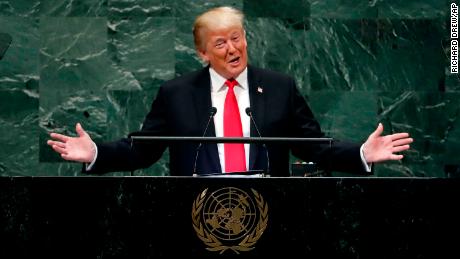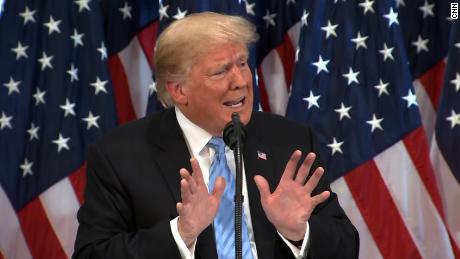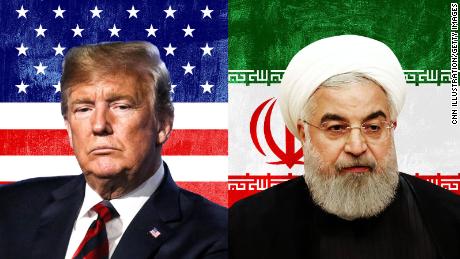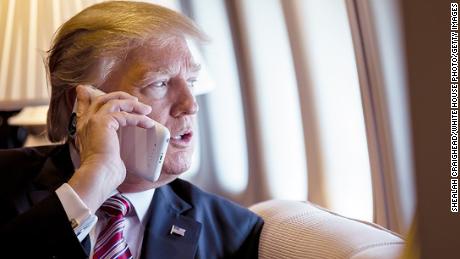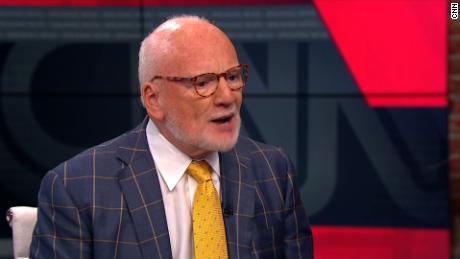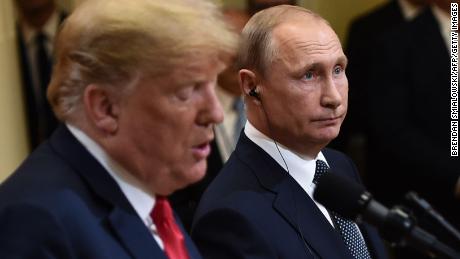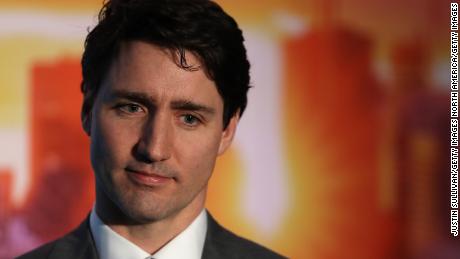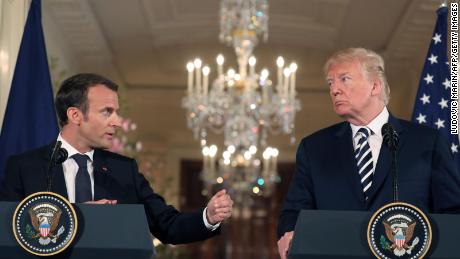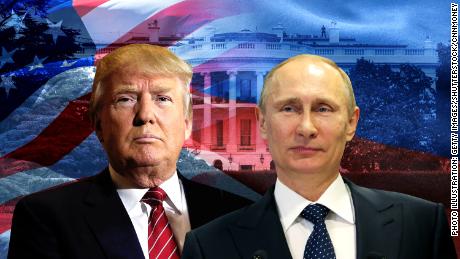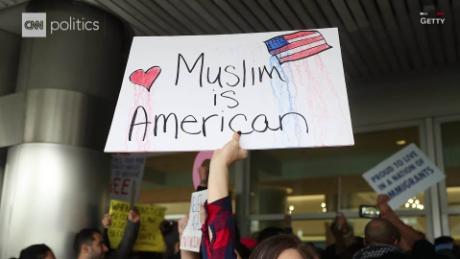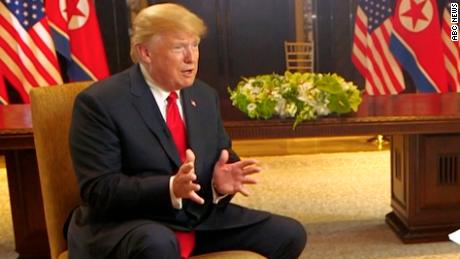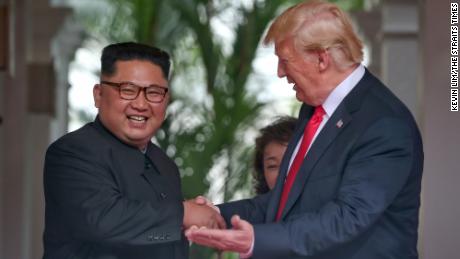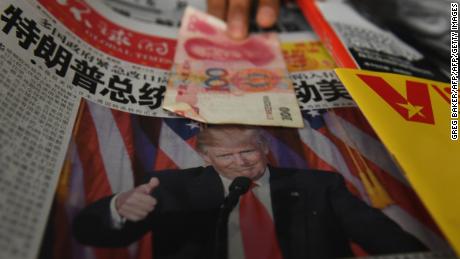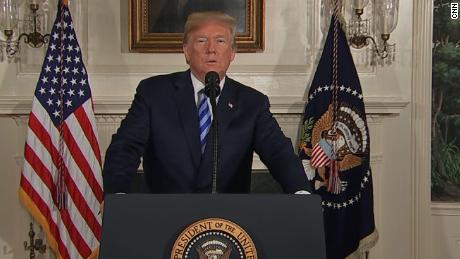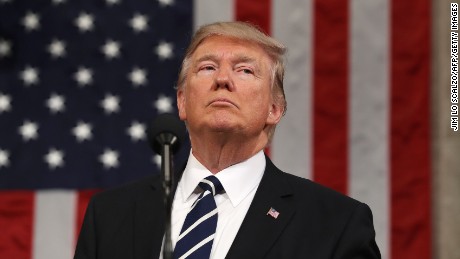(CNN)Donald Trump's first address as US president wasn't just watched by Americans -- the world was listening too, and for now, his inaugural remarks have left some depressed, many wary and everyone waiting for more.
After Trump's swearing in, the newly minted president gave a short speech that was light on policy specifics but hit hard on many of his campaign themes, including protectionism, trade-skepticism and an "America First" isolationism.
The tenor and content of the speech left some diplomats "depressed," they said, and sparked an emergency meeting in Canada, one of the largest US trading partners.
While some are stressing a need to wait and see what actions follow Trump's broad-brush rhetoric, international envoys and editorial pages also picked up on what the President didn't say -- his failure to reaffirm the traditional American role as a global leader of the international community.
"The message was 'America First and screw everyone else,' " said one Arab diplomat. "That mind frame is not lost on the world and it is not good for the United States."
A Western diplomat said Trump's speech on Friday transmitted to her country a message that the new US posture will be "America first and we will see about the rest of the world if we have time" -- a message that left people "depressed."
Countries formally welcomed the new president and some quickly issued Trump invitations or accepted them. Israeli President Reuven Rivlin published a letter inviting Trump to visit, while British officials said Prime Minister Theresa May will come to Washington next week for a meeting with Trump.
"This will primarily be an opportunity to get to know one another and to establish the basis for a productive working relationship," May's office said in a statement. "The leaders are expected to discuss a number of the most pressing global issues, notably tackling terrorism, Syria, relations with Russia and cooperation in NATO."
Indonesia's president, Joko Widodo, congratulated Trump, saying of their phone call, "President Trump said Indonesia-US relations will certainly be better because President Trump said he has many friends in Indonesia, and has business interests in Indonesia."
Putin call expected
A Russian spokesman said President Vladimir Putin will call Trump in the coming days. Kremlin spokesman Dmitry Peskov said Saturday on Russia's Channel One network that this was a "diplomatic necessity" given various US-Russia issues, including nuclear disarmament and Syria.
"The acting administration will have to be introduced to all the nuances of our bilateral ties," he said.
Russian Prime Minister Dmitry Medvedev downplayed the possibility that sanctions on Russia could be lifted soon, saying they would likely last for a long time and that Russia shouldn't rely on the arrival of new heads of foreign governments to change that.
"It is time to part with illusions that the sanctions will be lifted. Apparently, they will last long," Medvedev said Sunday during his speech at the convention of Russia's ruling party "United Russia" in Moscow.
A spokesperson for the Chinese Foreign Ministry said Monday of the future of US-China relations, "We should respect each other's core interests and major concerns, handle and manage our disagreements constructively to avoid letting them disrupt the overall relationship."
German Foreign Minister Frank-Walter Steinmeier said Sunday, "As with every transition of power there are uncertainties, doubt and question marks about the direction the new administration is taking ... I know we have to prepare for uncertain times as well as the unexpected and unknown. But I am counting on finding open ears in Washington who know that even big countries need partners in this world and who are ready to take their course together with good friends and established partners."
Dark inaugural remarks
Trump's inaugural remarks on Friday, which clocked in under 20 minutes, skated over familiar campaign themes, some put more baldly than others. He said protectionism would lead to strength, blasted other countries for the economic woes of the US, questioned the investment in security alliances, and painted a dark picture of weak borders that allow the US to be pillaged by "the ravages of other countries."
The Times of London, a conservative paper owned by Rupert Murdoch, said in an editorial that the President painted a "bleak" picture of "American carnage." The left-leaning Guardian, on its editorial pages, called the speech "by turns bitter, blowhard and banal" and noted that "in 1933, Roosevelt challenged the world to overcome fear. In 2017, Mr Trump told the world to be very afraid."
Among the slew of leaders quickly reaching out to Trump to try to establish a relationship with the new administration was Mexican President Enrique Pena Nieto. The southern US border is an intense focus for Trump, who has promised to build a wall there and have Mexico pay for it.
Pena Nieto's congratulatory call Saturday morning stressed Mexico's willingness to work on an agenda that would benefit both countries, according to his office, as well as the need to focus on respect for sovereignty and shared responsibility.
White House spokesman Sean Spicer said that Trump and Pena Nieto "talked about a visit on trade, immigration and security" that is to occur on January 31. It's unclear where the meeting will take place.
Whither NAFTA?
Mexico, the US and Canada form the North American Free Trade Agreement, which Trump, in a statement posted on the White House website Friday, pledged to unilaterally withdraw from if the other two nations don't agree to renegotiate the pact. On Monday, Trump began the process of unravleing the Trans-Pacific Partnership trade deal.
Canadian Prime Minister Justin Trudeau also called Trump on Saturday to stress the importance of Canada-US ties and remind Trump that 35 states count Canada as their top destination for exports.
Trudeau had to calm the frayed nerves of Canadian provincial leaders in a Friday phone call with them. Canada is the US' second-largest trading partner after China, with more than 70% of Canadian exports going to the US. The Prime Minister's office said he spoke to the leaders about efforts to find common ground with the new US administration.
Diplomats said Trump's inaugural speech left them deeply concerned about the US commitment to international security networks and organizations like NATO, particularly given Trump's assertion that the US had "subsidized the armies of other countries while allowing for the very sad depletion of our military."
Trump has dismissed NATO, seen as the core US security alliance, as "obsolete" and questioned whether the US should continue to lend security support to South Korea and Japan, both of which pay for that help. And he has unsettled friends and foes alike in 140-character blasts on Twitter.
Diplomats said they were looking to the inaugural speech for reassurance that the US remains anchored in its commitment to allies.
Instead, said the Western diplomat, after Trump's speech the feeling was that "we are surprised" and noted Trump's top foreign policy goal -- destroying ISIS.
What will American leadership mean?
"If they are serious about fighting ISIS, how does that work?" the official asked. "American leadership will be important and we didn't hear that international context. This wasn't a speech to the world or even all Americans. It was a campaign speech to his base, to people that voted for him, that said nothing about US leadership. Talking about fear and carnage is not going to give a nice picture of what the US is going to do in the world."
Several diplomats said they were disappointed by Trump's remarks, billing them as a missed opportunity for the new president to appear like a statesman and reach out to the world with a positive vision.
"Disappointing would be putting it nicely," one diplomat added.
Another diplomat, when asked about the speech, laughed. The diplomat would say only, "It's going to be very difficult" working with the new administration if the strategy Trump laid out Friday prevails.
Correction: An earlier version of this story included an incorrect title for Russian President Vladimir Putin.


